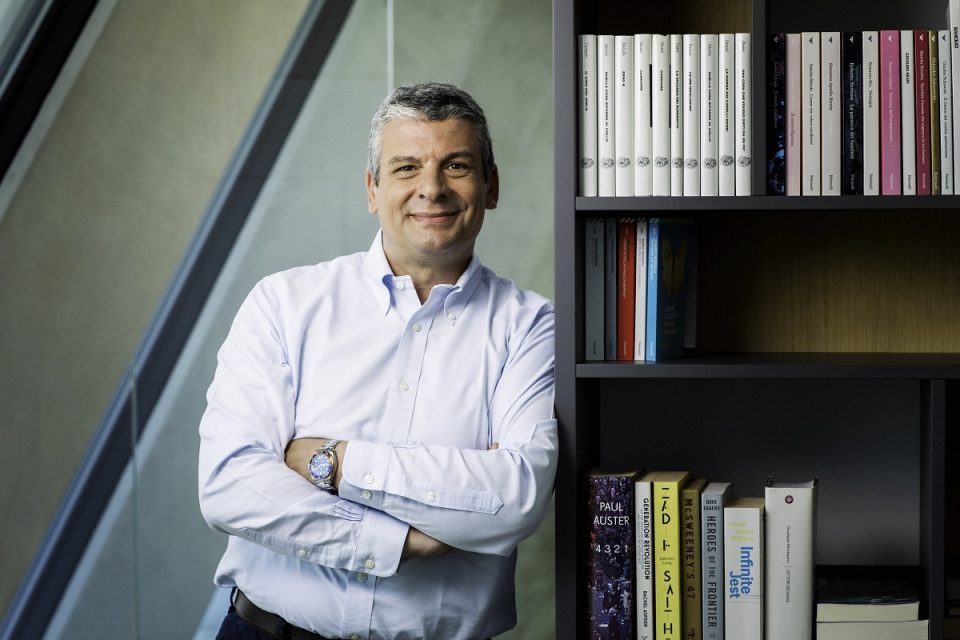Alfredo Giannattasio is the Regional Marketing and Operations Director for MICROSOFT Multi-Country subsidiary*, overseeing operations for 24 countries within Central & Eastern Europe (CEE), from Baltics and Eurasia to Central Europe and countries in the Adriatic region.
From your perspective, what do the 24 countries you are responsible for have in common? What are their main differences?
I often refer to our region as a kaleidoscopic business landscape: multiple languages, distinctive cultures, and different levels of business maturity. The shapes that you can get by mixing those elements are fascinating and endless, allowing you to be creative with prioritizing business means and related outcomes. Customer needs in the industry are common across different countries. Still, the type of solution and its implementation velocity depend on the willingness to drive innovation, the maturity of a country’s infrastructure, local legislation, and partner ecosystem. Our job is to augment the market’s commonalities to find synergies on the platform of initiatives we run across the region while tailoring its go-to-market strategy to local flavors and the “originality” of the business.
What is the role of marketing and comms in the tech industry?
The role of marketing and communication in the IT industry, as in any other organization, is to set business directions, communicate, compete, and convince. For us, it is not only about communication in technology, but also about technology in communication. For example, we use PowerBI to support data-driven decisions and tools for collaboration in a hybrid environment like Microsoft Teams.
With so many changes happening in the environment, we often re-evaluate priorities, making sure they fit into the current context. So, it is essential to listen more and plan the next phase of work, reconnect, prioritize, and add value, no matter what department, organization, or country you are dealing with.
How does Microsoft contribute to the local society?
Microsoft digital skilling initiative, trainings and AI for Good programs are simple examples of how we support the society in which we operate to be more resilient. Our skilling programs in the region help people to find unexpected career opportunities. We provide access to resources from LinkedIn, GitHub, and Microsoft Learn, enabling free training, employment data, and career support. This can help people build future-facing careers and result in positive long-term effects on the whole economy. Almost 600,000 people from multi-country, including Adriatic, have benefited from skilling programs in the last 2 years. We continue with our support in building a resilient society.
Microsoft has a survey Work Trend Index that analyzes new work trends. What are the main new findings, is hybrid work here to stay?
Hybrid work has become a new cultural norm and is here to stay. Work Trend Index has identified five key work trends: employees now have a new “worth it” equation and prioritize their wellbeing, managers feel wedged between leadership and employee expectations, and there is a need to design workplaces with enough flexibility to support every employee. To add, the study has shown that flexible work doesn’t have to mean “always on” and that creating networks outside of the immediate team contributes to creativity and innovations.
The way we work has changed inevitably, but it is up to employers and employees around the world to detect and implement a model that will be acceptable for everyone.
What is essential for a leader today? How to adapt to this new reality?
Empathy is becoming more critical than ever. It can help mitigate some effects of new working models on people and is the primary catalyst for the flexibility required by recent work trends. The ability to trust your team, provide clarity in business goals and bring positive tension to the system remain the basic leadership elements in this new reality.
However, the way you’re driving them needs to change, always staying focused on outcomes and leaving people the freedom to find the best fitting path for them to reach those goals.
Leaders must embrace the value of flexibility and pay attention to time management. Technology should be perceived as a strong ally, as productivity tools can save us time and accelerate our efforts to accomplish work-related tasks.
Microsoft recently presented the Digital Futures Index that measures the digitalization levels of European countries. What are its findings?
We’ve analyzed the digital journey of 16 European countries to understand the state of their digital development and support leaders in speeding up the digital transformation of their countries. This has given us a nuanced view of where each country stands on digital development and provided insights on action points to progress and materialize the opportunities for the economy. For example, we have found that Croatia performs exceptionally well in terms of talent and skills, Slovenia rides high on digital competitiveness, and digitization of the educational sector, whereas Serbia outperforms ICT export and gender diversity of IT pros. On the other hand, the big opportunity lies in digitalizing public services.
The fact is that more digitally advanced countries are proven to be greener, wealthier, more innovative, and more competitive. What matters now is how we can support society to accelerate digital development and unlock economic and social benefits for all.
What are novelties from Microsoft?
Our updated Windows 11 – designed for a hybrid workplace, with new hardware security requirements, multiple layers of application security, passwordless protection, and comprehensive cloud services for identity, storage, and access management. We continue enhancing Microsoft Viva, an employee experience platform that helps our customers to reimagine company culture, employee well-being, knowledge sharing, and learning for the hybrid work world.
There are many more announcements that will come at the annual Microsoft Build Conference that will take place at the end of May.
*Multi-Country is a subsidiary within Central and Eastern Europe including 24 countries: Armenia, Albania, Azerbaijan, Belarus, Bosnia and Herzegovina, Bulgaria, Croatia, Estonia, Georgia, Kazakhstan, Kosovo, Kyrgyzstan, Latvia, Lithuania, Moldova, Mongolia, Montenegro, North Macedonia, Serbia, Slovenia, Tajikistan, Turkmenistan, Ukraine, and Uzbekistan.





